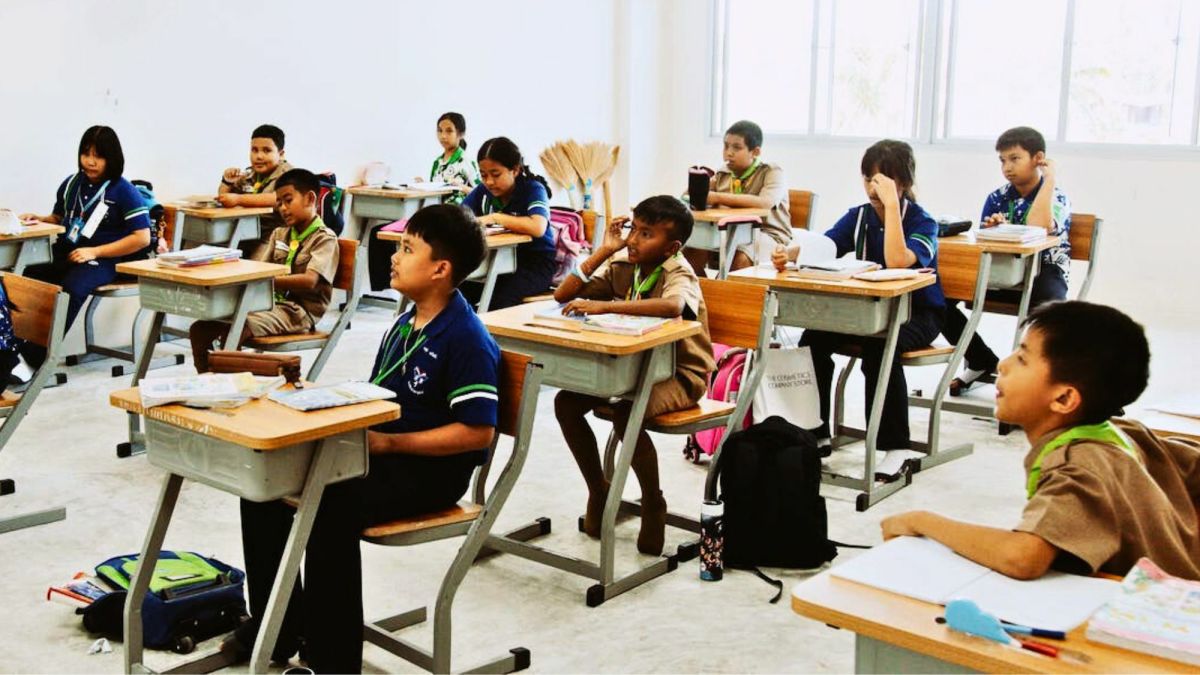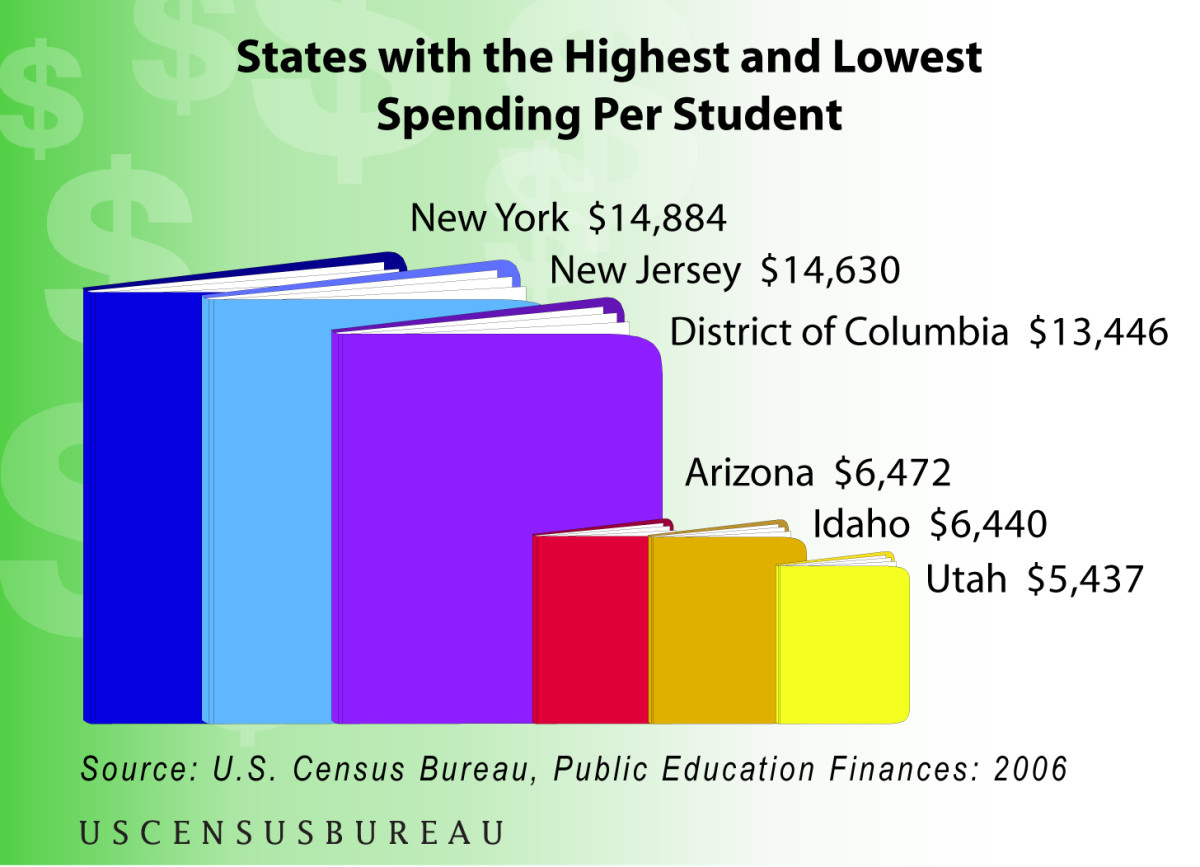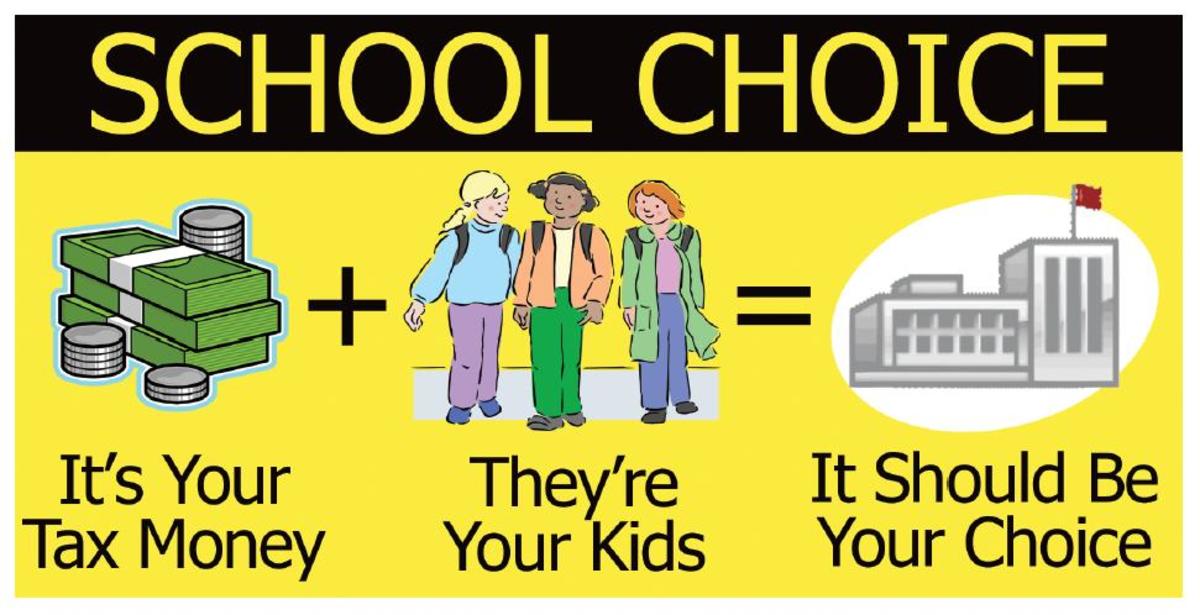Why Middle School Is the Weak Leak in Public Education and More Parents Are Homeschooling
Students Seeking "Academic Rigor" Do On-Line Classes at Home Because Our Schools Don't Provide Enough Challenges
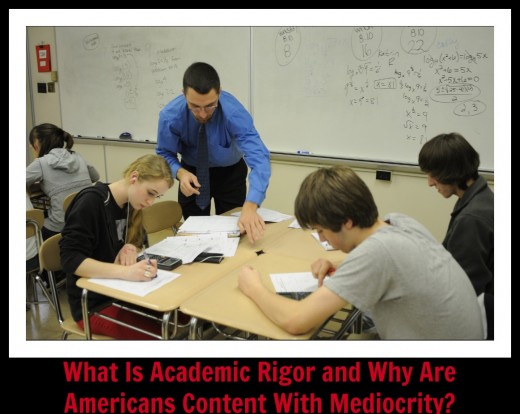
Dumbing Down the Curriculum So Nobody's Feelings Are Hurt
In the name of political correctness and inclusion, we're dumbing down the curriculum in American schools as the federal government further inserts itself into education. Decisions are no longer made in classrooms, schools, school districts, and state houses but in Washington, DC by politicians, bureaucrats, and lobbyists who have no background in education and no teaching experience. Educators, expected to act more and more like robots, now deliver material with less creativity, autonomy, humanity and common sense and more bland sameness. They toil with added pressure from high stakes testing, Common Core standards, and the increased use of technology in the classroom but with diminished respect for them as people and professionals.The question begging an answer is: Why do we insist educators teach to the lowest common denominator – those students who struggle cognitively and/or behaviorally – and not to students in the middle and top, who hunger for academic rigor and uninterrupted learning? Parents need to demand academic rigor at school and not settle for mediocrity.
Why Are Schools Not Challenging Kids?
My 12-year-old son breezed through his first year in middle school with all A's and A pluses. He skipped sixth grade math and moved straight into seventh. He was in the TAG program (talented and gifted) for language arts and social studies. Yet, instead of being a proud mama, bragging to my friends about his spectacular grades, I became deeply troubled about our educational system and how we Americans are so overly impressed with mediocrity.
While my son is certainly bright and capable, he isn't a whiz kid by any means. Yet, by our low standards in the U.S., he's practically considered a genius at his school. During sixth grade, he never once broke a sweat, never once stayed up late wrestling with a difficult homework assignment, and never once felt frustrated by learning something new and hard. When I'd ask him if anything at school was challenging him, he'd always give me a resolute “no".
Middle School Counselors Focus on Emotional and Behavioral Issues, Not on Providing Academic Challenges to Smart Students
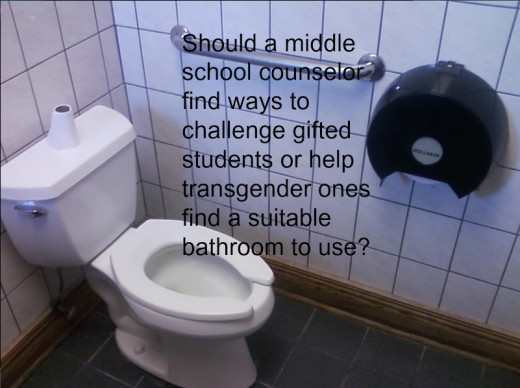
Is Academic Rigor Undemocratic?
Unfortunately, some teachers and administrators have a political agenda that prevents students from soaring. They believe students should always be placed in heterogeneous groups with a wide-range of cognitive abilities and motivational levels. They object to homogeneous groups, claiming they're undemocratic and not representative of society as a whole. In other words, homogeneous groups are politically incorrect; they're unfair to the lazy, disruptive students who zap the teacher of all her energy and patience and hijack the other students' precious learning time.
As a result, our schools are adept at providing remedial help for those at the bottom but not skilled at offering academic challenges for those in the middle and top. Heterogeneous groups, especially in middle schools, breed mediocrity because students at this age value blending in with the crowd more than they esteem academic excellence. High achieving middle school kids, faced with tremendous peer pressure to be mediocre, should be placed with classmates who have comparable intelligence and drive to get the best out of them. When they enter the job market -- whether in the tech world of Silicon Valley, the financial realm of Wall Street, or the academic universe of higher education -- they'll need to know how to collaborate with other smart, talented, and motivated workers
Few Options Available for Students Who Need Academic Rigor
When I asked a middle school counselor about developing a more academically rigorous schedule for my son, he seemed confounded but my concern and replied that my son was right where he belonged. We're pushing young children to learn more at earlier ages with reading groups in kindergarten and standardized testing in the primary grades, but we put the brakes on acceleration when children reach middle school. A parent who demands more academic rigor for her kid is dismissed as an annoying "helicopter mom."
Many middle school counselors don't see the importance of providing academic challenges. My brother is the one and only counselor at a middle school of 1200 students. He uses his time to deal with girls who are bullying one another on Facebook, kids who are threatening suicide, and transgender students who are complaining about the bathroom situation. Providing a more demanding course of study for students who get straight A's is the least of his concerns.
When Parents of Middle School Students Want More Demanding Classes for Their Kids, They're Usually Met With Resistance by Administrators

What Steps Are Middle School Parents Taking to Challenge Their Children Academically?
Many parents of middle school students – believing the curriculum too easy – decide to educate their children themselves. When I was a kid, parents who made this choice did so for religious reasons. But today, many moms and dads do it for one reason only – to give their youngsters a more demanding education because the schools refuse to do so.
Some parents are now designing individualized academic plans for their children – combining classes at school with on-line ones at home. My friend takes her son to classes in the morning -- physical education, band, and language arts -- for the purpose of enrichment and socialization. She then picks him up after lunch and takes him home for an afternoon schedule of on-line studies in math and social studies that's more fast-paced and stimulating than what's offered in the classroom. When explaining her decision, she says: "I got tired of the school treating my child like a tortoise when he's clearly a cheetah."
Why Do Parents Home School Their Children?
Home School Statistics (source: Trinity University)
48.9% – Can give child a better education at home
38.4 % – Religious reasons
25.6% – Poor learning environment at school
16.8% – Family reasons
15.1% – To develop character/morality
12.1% – Object to what school teaches
11.6% – School does not challenge child
11.5% – Other problems with available schools
9.0% – Student behavior problems at school
8.2% – Child has special needs/disability
United States in the Middle of the Pack...Again
Inclusion: Teaching to the Lowest Common Denominator
If you think private schools are free from government interference, bureaucracy, and the dumbing down process, you're most definitely mistaken. I worked part-time at a private preschool and loved every single minute of it. But when a child with Down's Syndrome entered my pre-k class, he came with an entire team of early intervention specialists, heaps of paperwork and regulations, and a political agenda of inclusion. I had to abandon the curriculum I had used successfully for five years to meet his unique learning needs. This was done so at the expense of the other 19 students.
While this child was 5-years-old chronologically, he was between 2 and 3 cognitively, emotionally, and behaviorally. He needed direct instruction in a small group setting with step-by-step directions, lots of repetition, and a slower pace. He needed both speech and occupational therapies but was getting neither.
It seemed like a crime that this private school was charging tuition when I could no longer deliver a challenging curriculum that would prepare the children for kindergarten. It seemed like a crime that I was now an employee of the state – 100% responsible for this child (even carrying him from place to place) – but received no increase in pay. It seemed like a crime that these early intervention specialists interrupted my class and told me how to teach but did nothing to help this child.
This experience showed me how we're dumbing down education all in the name of political correctness and how we're too willing to accept mediocrity in our schools. Even though this youngster hit other children, I had to use the p.c. word “handsy” to describe his actions so as not to offend. Multiple times each day I had to say “happy hands,” “happy hands” while shaking my hands in the air to remind him not to hit. It's not a coincidence that this happened in Oregon, which was ranked number 41 in education by Education Week in 2015.The weaknesses in Oregon schools, like those in many other states, start early when those with a political agenda insist on shoving it down everyone's throats, hurting teachers and students in the process.
Even in Preschool, We're Dumbing Down the Curriculum in the Name of Political Correctness

Final Thoughts: Parents Must Demand Academic Rigor, Not Settle for Mediocrity
When parents don't demand academic rigor at school, mediocrity is what we get. The process of dumbing down American education forces me to put things in perspective for my two sons. I remind them that just because they're rock stars here doesn't mean they're competitive with international students. Many students around the world grow up in cultures in which academic rigor is more highly prized than it is here. My boys nod their heads as if they understand what I'm saying. However, I have no doubt they'll be in for a big shock when they hit the real world and find out achievement means a lot more than political correctness.
Changing the School Culture from Mediocrity to Greatness
How can American schools encourage academic rigor?
© 2015 McKenna Meyers

